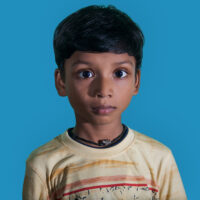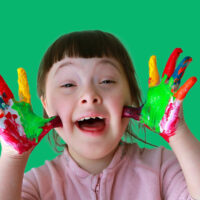Prevalence
-

Anxiety Disorders
Anxiety disorders in children and young people are common and can have a significant impact on mental health and well-being. Anxiety disorders can affect family, school and social life, leisure activities and educational achievement and they often occur alongside other mental health problems.
Read more -

Bullying
Not long ago, bullying was viewed as a normal part of childhood’s formative experiences. Over the past 50 years, since the pioneering work of Dan Olweus (1970), bullying started to be recognized as a complex public health matter and a social problem. Solid evidence has accumulated about the impact of bullying victimization on children’s and adolescents’ (hereby youth) mental health and well-being.
Read more -

DLD – Developmental Language Disorder
Developmental language disorder (DLD) is diagnosed when a child’s language skills are persistently below the level expected for the child’s age. In DLD, language deficits occur in the absence of a known biomedical condition, such as autism spectrum disorder or Down syndrome, and interfere with the child’s ability to communicate effectively with other people.
Read more -

Eating Disorders
Eating disorders: an introduction to anorexia nervosa, bulimia nervosa and other eating disorders. From this topic guide, you can find the latest blogs, events, publications, videos and podcasts.
Read more -

Intellectual Disabilities
Many terms have been used to describe an intellectual disability (ID) or medical conditions linked to an ID. Some terms that were originally designed to describe levels of intellectual disability or specific medical conditions, have unfortunately become part of common derogatory language used within society and so have become insults.
Read more -

OCD – Obsessive Compulsive Disorder
People with Obsessive Compulsive Disorder (OCD) experience unpleasant and intrusive thoughts, images, doubts or urges (called obsessions) and repetitive behaviours (called compulsions). Compulsions are usually carried out as a way of reducing the distress caused by obsessions. OCD takes many different forms and causes distress and interference to day-to-day life.
Read more -

-

Self-harm & Suicide
Self-harm is an increasingly recognised phenomenon and one of the strongest predictors of suicide, which continues to be one of the leading causes of death in young people worldwide. Self-harm can take many forms and may present with or without suicidal intent and both in the context of mental disorder, and without.
Read more -

School-based interventions
Children and young people spend a great deal of time at school, so it has an important role to play in their development. Time spent in school impacts not just on academic and cognitive progress, but also on social interactions, peer relationships, emotional regulation and behaviour. All these areas affect, and are affected by, mental health (Fazel et al, 2014).
Read more -

Tourette Syndrome
Tourette Syndrome (TS) is a neurological condition that is estimated to effect over 300,000 children and adults in the UK; and one school child in every hundred.
Read more